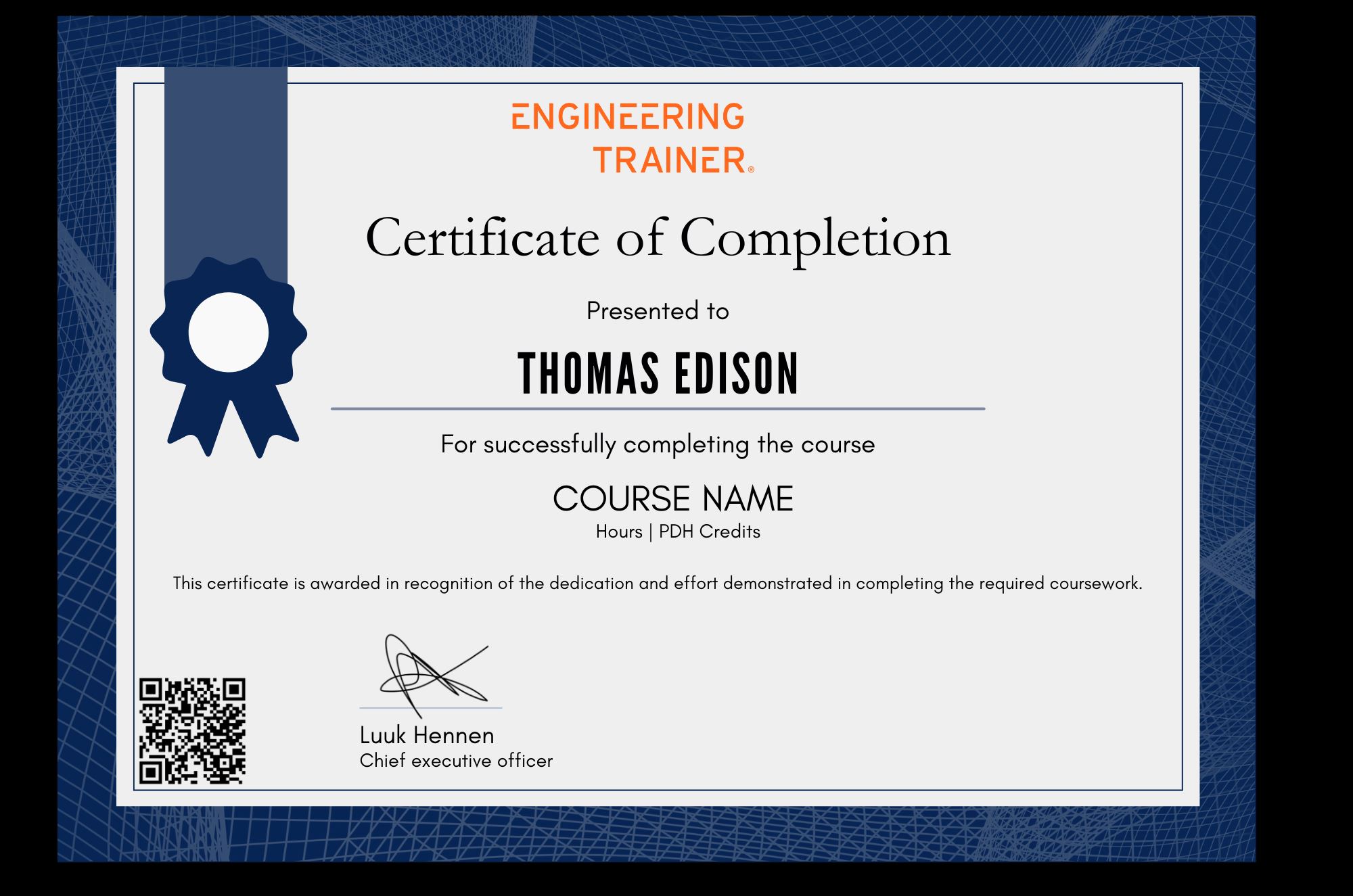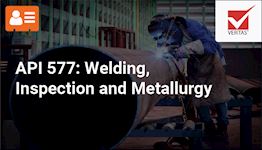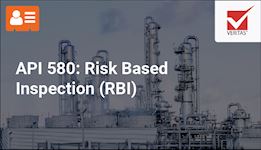Piping Inspector conform API 570
About the course
API specification 570 covers the inspection, rating, repair, and alteration procedures for metallic and fiberglass-reinforced plastic (FRP) piping systems and their associated pressure relieving devices that have been placed in service.
This three-day live instructor led virtual training frames the requirements from a managerial and business prospective and will provide you with a working understanding of the API 570 requirements.
This course will teach you how to provide a continued high level of safety through the use of inspectors specialized in process piping and how to improve management control of process unit inspection, repair, alteration and rerating, hence reducing the potential for inspection delays resulting from regulatory requirements.
The course consists of 6 online live instructor led sessions spread across three days. All training content is provided through your EngineeringTrainer account.
Learning Outcomes
After this course, you...• will understand of all the information covered in the API 570 'Body of Knowledge'. This includes ASME welding requirements for pressure piping section IX and B31.3 VIII and ASME non-destructive testing principles and application of Section V,
• will have a good overview of pressure piping design review ASME B31.3: weld sizes, pipe branch reinforcement, brittle fracture, weld efficiency factors and post weld heat treatment,
• will be familiar with the API 570 inspection, repair and re• rating of piping practices, including inspection intervals, inspection requirements and their relationships to ASME codes,
• will be able to perform corrosion, minimum thickness determination and remaining life calculations, knowing the degradation mechanisms of piping corrosion and cracking such as erosion, common corrodents, hydrogen and H2S damage, alloy degradation.
Who should attend this course
Those working for organizations that are working & using the API 570 Specification, such as:• Quality System Auditors
• Piping Inspectors
• Maintenance Managers
• Plant Managers
Prerequisites
General piping design backgroundProgram & Details
-
Owner/User Inspections Organizations
Live
1. Scope and Applications
2. References
3. Authorised Piping Inspector Qualification and Certification
4. Responsibilities -
Inspection, Examination and Pressure Testing Practices
Live
1. Inspection Plan
2. RBI
3. Types of Inspection and Surveillance
4. Corrosion under Insulation
5. Mixing Point Inspection
6. Injection Point Inspection
7. Pressure Testing of Piping Systems
8. Material Verification and Traceability
9. Inspection of Valves
10. In-service Inspection of Welds
11. Inspection of Flanged Joints -
Interval/Frequency and Extent of Inspections
Live
1. Inspection during Installation and Service Changes
2. Piping Inspection Planning
3. Extent of Visual External and CUI Inspections
4. Extent of Thickness Measurement Inspection and Data Analysis
5. Extent of Inspections around connections
6. Inspection and Maintenance of Pressure-relieving devices -
Inspection Data Evaluation, Analysis and Recording
Live
1. Corrosion Rate Determination
2. Remaining Life Calculations
3. Newly Installed Piping Systems
4. Changes in Service
5. Existing and Replacement Piping
6. MAWP Determination
7. Required Thickness Determination
8. Assessment and Reporting of Inspection Findings
9. Inspection Recommendations and Records
10. Piping Failure and Leak Reports
11. Deferral of Inspections, Examinations and Tests -
Repair, Alterations and Rerating of Piping Systems
Live
1. Repairs and Alterations
2. Welding and Hot TaPiping
3. Re-rating -
Inspection of Buried Piping
Live
1. Above-grade Visual Surveillance
2. Close-interval Potential Survey
3. Pipe Coating Holiday Survey
4. Soil Resistivity
5. Cathodic Protection Monitoring
6. Inspection Methods
7. Frequency and Extent of Inspection
8. Repairs to Buried Piping Systems
9. Records
Certification

Contact us to Learn More

Why choose EngineeringTrainer
-
Unlimited Team-wide Access
-
Advance Technical Competences
-
Courses by Industry Authorities
Since using EngineeringTrainer our internal mentorship has a much more matured character.
Logan Chapman - COO at Chapman Consulting Inc.








